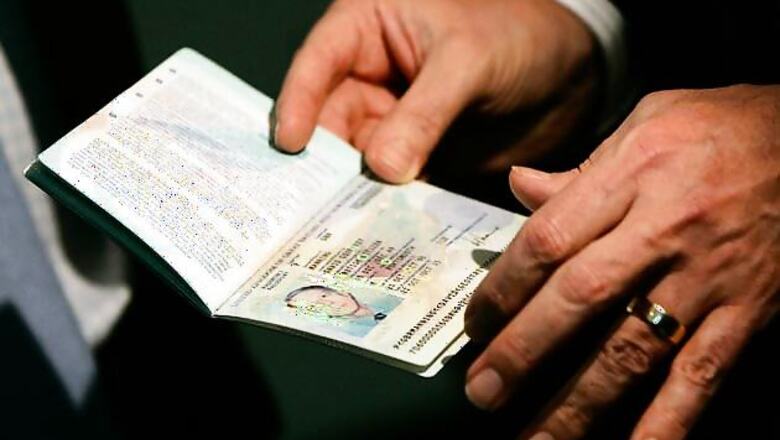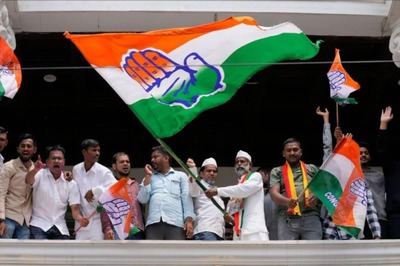
views
Britain's Home Office confirmed on Monday it will demand a 3,000 pound ($4,630) refundable bond for visas for "high-risk" visitors from six former colonies in Africa and Asia - a pilot scheme that has brought warnings at home and abroad that it will damage trade.
Britain said in a statement Monday that it will go ahead with the pilot scheme despite the outrage, charges of discrimination and warnings of retaliation.
The statement sent by email did not say when the pilot would start. But it said it could apply the scheme in the future for all visas and any country.
"The pilot will apply to visitor visas, but if the scheme is successful we'd like to be able to apply it on an intelligence-led basis on any visa route and any country," it said.
For now, the targeted countries are Nigeria, Ghana, India, Pakistan, Bangladesh and Sri Lanka. Government data shows citizens of those countries applied for more than half a million visas last year.
Khaled Mahmud, owner of a Bangladeshi travel agency in Dhaka that deals with British student visas, said the scheme was racist. "It smacks of a deep-rooted racial attitude," he told The Associated Press on Monday.
In the southern Pakistani city of Karachi, computer businessman Syed Shahid Ali said the "painful and unbearable" new policy would have a negative impact on British tourism and business.
"How can someone who wants to visit the UK for a couple of days for business meetings or something else afford to set aside 3,000 pounds" said Ali, who travels there frequently. "He will simply prefer to go and do business elsewhere in Europe instead of getting into this problem of giving a bond and getting reimbursed."
Haider Abbas Rizvi, a former Pakistani lawmaker, said the British government should review its decision because it would hurt a lot of Pakistanis who have family members living in Britain and who cannot afford the bond.
"There are just a few people who deviate from the system or break the law, so instead of bringing common travelers and law-abiding people under the possible financial burden, there should be strict surveillance on the violators of law in the U.K. or elsewhere," Rizvi told the AP.
Nigeria's government made a formal demand last month that Britain renounce the proposal. Foreign Affairs Minister Olugbenga Ashiru called in the British high commissioner to express "the strong displeasure of the government and people of Nigeria" over the "discriminatory" policy.
Ashiru warned the move would "definitely negate" the two country's commitment to double trade by 2014. Nigeria is Africa's most populous nation and a huge market with its more than 160 million people. British government figures indicate 101,000 Nigerians were issued visas in 2012.
There were protests in India last month when British Prime Minister David Cameron visited, causing him to declare that a final decision had not been taken on the policy.
The Home Office said it hopes the bond system deters overstaying of visas and recovers costs of foreign nationals using public services like hospitals and schools.
Immigration was a key issue in Cameron's election campaign for his Conservative Party. Cameron has pledged to cut net immigration from 252,000 a year in 2010 to 100,000 a year by 2015.
One move that has come under heavy criticism recently has been a government campaign targeting people who overstay their visas. Billboards were put on two vans for a week in six of London's boroughs. Their message said: "In the UK illegally? Go home or face arrest." Leaflets with the same message will be distributed for a month.
The Home Office statement said the visa bond "is the next step in making sure our immigration system is more selective, bringing down net migration from the hundreds of thousands to the tens of thousands while still welcoming the brightest and the best to Britain."
####


















Comments
0 comment